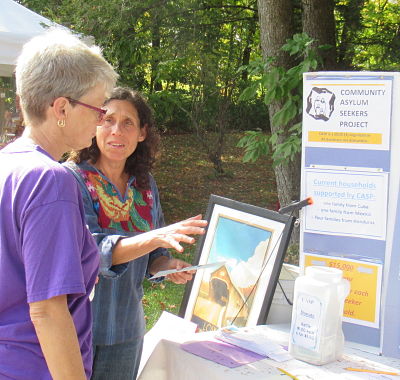Founded in 2016 by Steve Crofter, CASP (Community Asylum Support Project) offers critical legal, social, and community services to asylum seekers in Vermont. Since its inception, CASP has supported individuals and families from Latin America, the Caribbean, Central and Southeast Asia, Europe, and sub-Saharan Africa, helping them rebuild their lives free from violence, persecution, and torture.
Currently, CASP serves 32 asylum seekers in the Brattleboro area, assisting with housing, legal aid, language learning, job placement, medical care, and community orientation. This work is powered by a network of over 200 volunteers and funded by individual donations and grants, as asylum seekers receive no federal funding.
CASP collaborates with a statewide grassroots coalition that has supported 200+ asylum seekers. In 2022, CASP launched the Vermont Asylum Assistance Project (VAAP), a partnership aimed at addressing the shortage of pro bono immigration attorneys and expanding legal support for asylum seekers. VAAP has since become its own nonprofit, providing legal representation and mentorship for aspiring immigration attorneys.
As demand for services grows, CASP is working to expand its reach and continue supporting Vermont’s immigrant community.

